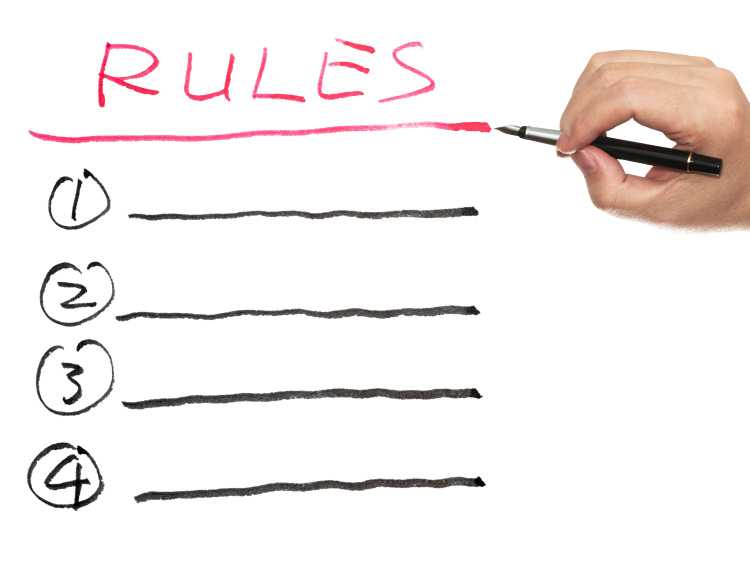Why are Family Rules Important for Toddlers and Preschoolers?

Family rules help create structure. A family rule is a specific, clear statement about behaviors you expect from your child. Family rules may be specific to a situation, like dinner time rules. They can also be specific to behaviors that are never okay, like running in the house. Whatever the reason for the rule, your child’s behavior and your relationship can be better with rules. Rules work best when there is consistency, predictability, and follow-through. To learn more about these building blocks of structure and rules, click here.
Why are family rules important?
Family rules help children understand what behaviors are okay and not okay. As children grow, they will be in places where they have to follow rules. Following rules at home can help children learn to follow rules in other places.
It is normal for children to break rules and test limits. Breaking a rule is a child’s way of learning about his world. Consistent follow through with consequences when rules are broken help your child have a clear understanding about the importance of rules. Remember, young kids sometimes break rules because they simply forget. Not all broken rules occur because kids are testing the limits. But, our responses should be the same no matter what the reason for breaking the rule.
Why should all family members know and follow the rules?
For family rules to work well, everyone needs to know, understand, and follow the rules. By doing this, children don’t get mixed messages about what is okay or not okay. For example, you may feel that jumping on the bed is a dangerous behavior. You set a family rule that “The bed will be used only for sitting, lying, or sleeping.” If another caregiver jumps on the bed, your child may be confused. Your child may think this behavior is sometimes okay. Your child’s behavior will be better if all caregivers support the rules in the same way. This is true for parents, grandparents, or any other caregivers in your child’s life.
How can all family members get on the same page about rules?
There are several steps that can help all family members be consistent.
- Parents can talk about what rules would help their family and agree which ones to set.
- Parents can post the rules in the house so everyone can know them.
- Parents can have conversations with other adults who care for their children about the rules. This helps make sure everyone knows what is allowed and not allowed.
- Parents can ask all caregivers to be consistent in monitoring and enforcing the rules.
- Parents can remind children about the rules. Repeating the rules and posting them in the home are all good ways to remind children of the rules.
What is a good number of family rules for toddlers and preschoolers?
The number of rules you set depends on your child’s ability to understand and remember. It is also hard for parents to consistently enforce lots of new rules. For young children, focus on only two or three of the most important rules at any one time. As your child learns a rule and is following it consistently, you can add new rules.
Click here for instructions on setting family rules.
- Page last reviewed: May 19, 2014
- Page last updated: May 19, 2014
- Content source:


 ShareCompartir
ShareCompartir